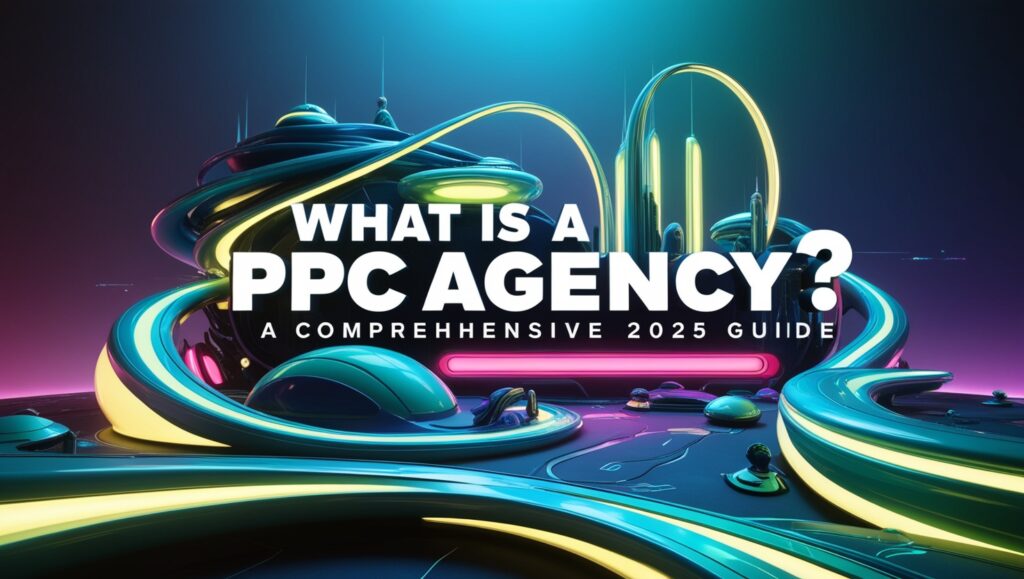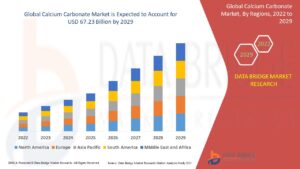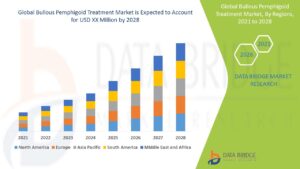Pay per click (PPC) advertising has become a vital part of online marketing strategies for businesses of all sizes. With the rise of digital marketing, PPC campaigns allow businesses to target specific audiences and drive traffic to their websites.
In this article, we will explore what a PPC agency is, its services, and how it can help businesses achieve their marketing goals in 2025.
1. What is a PPC Agency?
PPC agencies typically work with businesses of various sizes and industries, helping them achieve their online marketing objectives through targeted, data-driven campaigns. These agencies employ specialists who are skilled in keyword research, ad copy creation, bid management, conversion tracking, and other aspects of online advertising.
2. How Does PPC Work?
PPC advertising works by displaying ads to users who search for specific terms or fit certain criteria on various platforms. When a user clicks on an ad, the business that placed the ad is charged a fee. The amount of the fee varies depending on the competition for the keyword or audience.
Here’s a simplified breakdown of how PPC works:
- Ad Auction: When a user enters a query or engages with a platform, the platform runs an auction to decide which ads to show. Advertisers place bids on keywords they want to target. These bids are based on how much an advertiser is willing to pay for a click.
- Ad Rank: The platform decides which ads will be shown based on the bid amount, the relevance of the ad to the user’s search, and the quality of the ad. Higher-quality ads with relevant content and good landing pages tend to rank better.
- Cost per Click (CPC): The amount an advertiser pays when a user clicks on their ad. Advertisers don’t pay when the ad is simply displayed, only when the ad is clicked.
- Conversion: A successful conversion occurs when the user takes the desired action, such as making a purchase, signing up for a newsletter, or downloading an eBook.
3. Why Should You Hire a PPC Agency?
Businesses can manage their PPC campaigns in-house, but hiring a PPC agency can bring many advantages. Here are a few reasons why a business might consider hiring a PPC agency:
- Expertise and Experience: PPC agencies have a team of specialists with in-depth knowledge of advertising platforms and strategies. They understand the nuances of creating effective campaigns across various digital channels, including social media marketing platforms, and can adjust strategies quickly for optimal results.
- Time-Saving: Managing PPC campaigns can be time-consuming, especially if you’re not familiar with the platform’s tools. A PPC agency can handle everything, from keyword research to campaign optimization, allowing you to focus on other aspects of your business.
- Cost Efficiency: While it might seem counterintuitive to pay an agency, hiring a PPC expert can save money in the long run. They can manage bids effectively, identify areas for improvement, and help you achieve a better return on investment (ROI).
- Better Strategy Development: PPC agencies don’t just set up ads and walk away. They continuously monitor and optimize campaigns to ensure they are performing well. They use data and analytics to tweak campaigns and improve overall performance.
- Access to Advanced Tools: PPC agencies often have access to premium tools that provide deeper insights into campaign performance. These tools can help identify new opportunities, track competitor behavior, and make data-backed decisions.
4. Services Offered by a PPC Agency
A full-service PPC agency offers a wide range of services designed to help businesses maximize their online advertising efforts. Here are some of the key services offered by most PPC agencies:
- Keyword Research: PPC agencies perform in-depth keyword research to identify the best keywords for your business. This ensures your ads are shown to users who are actively searching for products or services like yours.
- Campaign Setup and Management: A PPC agency will create and manage your campaigns across various platforms. This includes setting up ad groups, writing ad copy, and selecting the appropriate targeting options.
- Ad Copywriting: Crafting compelling ad copy is crucial to attracting the right audience. A PPC agency can write ads that grab attention, convey your message clearly, and encourage users to click.
- Bid Management: Agencies manage your bids to ensure that you’re getting the most value for your money. They optimize bids to help you rank for important keywords while staying within your budget.
- Conversion Tracking and Optimization: A PPC agency tracks conversions to determine how well your campaigns are performing. They use data to make adjustments and improve the chances of a conversion.
- Landing Page Optimization: An effective landing page can significantly improve your PPC campaign results. PPC agencies often provide advice or services to optimize your landing pages for higher conversion rates.
- Performance Reporting: Regular reports help you understand how your campaigns are performing. PPC agencies provide detailed reports that include metrics like impressions, clicks, conversions, and cost-per-conversion.
5. Choosing the Right PPC Agency
Choosing the right PPC agency is crucial to the success of your campaigns. Here are some tips to help you select a reputable agency:
- Experience and Expertise: Look for an agency with experience in your industry and a proven track record of successful PPC campaigns. Make sure they have the right expertise in the platforms you want to use, such as Google Ads or Facebook Ads.
- Transparency: A good PPC agency will be transparent with you about their strategies and the results they are achieving. Look for an agency that provides clear reporting and regular updates.
- Custom Solutions: Avoid agencies that offer one-size-fits-all solutions. Every business has unique needs, and your PPC strategy should be tailored to your goals.
- Case Studies and Reviews: Check the agency’s portfolio and ask for case studies or testimonials from previous clients. This will give you an idea of their capabilities and the results they have delivered.
- Budget Considerations: Ensure that the agency can work within your budget. A good agency will prioritize cost-effectiveness while aiming for the best possible results.
6. Key Metrics in PPC Campaigns
Certain metrics need to be tracked to measure the success of a PPC campaign. These metrics provide insights into how well the campaign is performing and where adjustments are needed. Some key metrics include:
- Click-Through Rate (CTR): This measures how often people click on your ad after seeing it. A high CTR indicates that your ad is relevant and engaging to your audience.
- Cost Per Click (CPC): This is the amount you pay each time someone clicks on your ad. Monitoring this metric ensures that you’re not overspending on clicks.
- Conversion Rate: This measures how many clicks lead to a desired action, such as a purchase or form submission. A high conversion rate indicates that your ads and landing pages are effective.
- Cost Per Conversion: This metric tells you how much you’re paying for each successful conversion. It’s important to keep this cost within a profitable range.
- Impressions: The number of times your ad is shown to users. A higher number of impressions means that your ad is being seen by more people.
- Quality Score: Google assigns a Quality Score based on the relevance and quality of your ads, keywords, and landing pages. A higher score can result in lower costs per click and better ad placements.
7. Benefits of PPC for Your Business
PPC advertising can offer several advantages for businesses. Here are some key benefits:
- Instant Traffic: Unlike SEO, which can take time to yield results, PPC ads generate immediate traffic as soon as the campaign is live.
- Targeted Reach: PPC allows you to target specific demographics, geographic locations, devices, and even times of day, ensuring that your ads reach the right audience.
- Measurable Results: PPC campaigns are highly measurable. You can track how much you spend, how many clicks you receive, and how many conversions are generated.
- Flexibility: PPC campaigns are flexible. You can adjust your budget, targeting, and strategy based on real-time performance data.
- Brand Awareness: Even if users don’t click on your ad, your brand is still visible. This helps to increase brand recognition and recall.
8. Challenges in PPC Campaigns
While PPC advertising has many benefits, it also comes with its challenges. Here are some of the common challenges businesses face:
- High Competition: Many industries are highly competitive, and bidding on certain keywords can be expensive. This can make it difficult to achieve a profitable ROI without careful bid management.
- Constant Monitoring: PPC campaigns require constant monitoring and adjustments. If left unchecked, they can quickly drain your budget without delivering results.
- Ad Fatigue: If your ads are shown too often to the same audience, they may become less effective over time. Regular testing and optimization are necessary to avoid ad fatigue.
- Complexity: PPC advertising platforms are complex, and managing campaigns can be time-consuming. For businesses without the right expertise, it can be difficult to get the desired results.
Conclusion
A PPC agency can play a vital role in helping businesses reach their target audience through paid online advertising. These agencies offer expertise in creating, managing, and optimizing PPC campaigns, allowing businesses to achieve measurable results. By understanding the process, choosing the right agency, and tracking key metrics, businesses can effectively use PPC to boost their online visibility, increase traffic, and generate conversions.
In 2025, as competition for digital space grows, working with a skilled PPC agency will become even more critical for businesses looking to thrive in the online marketplace.






